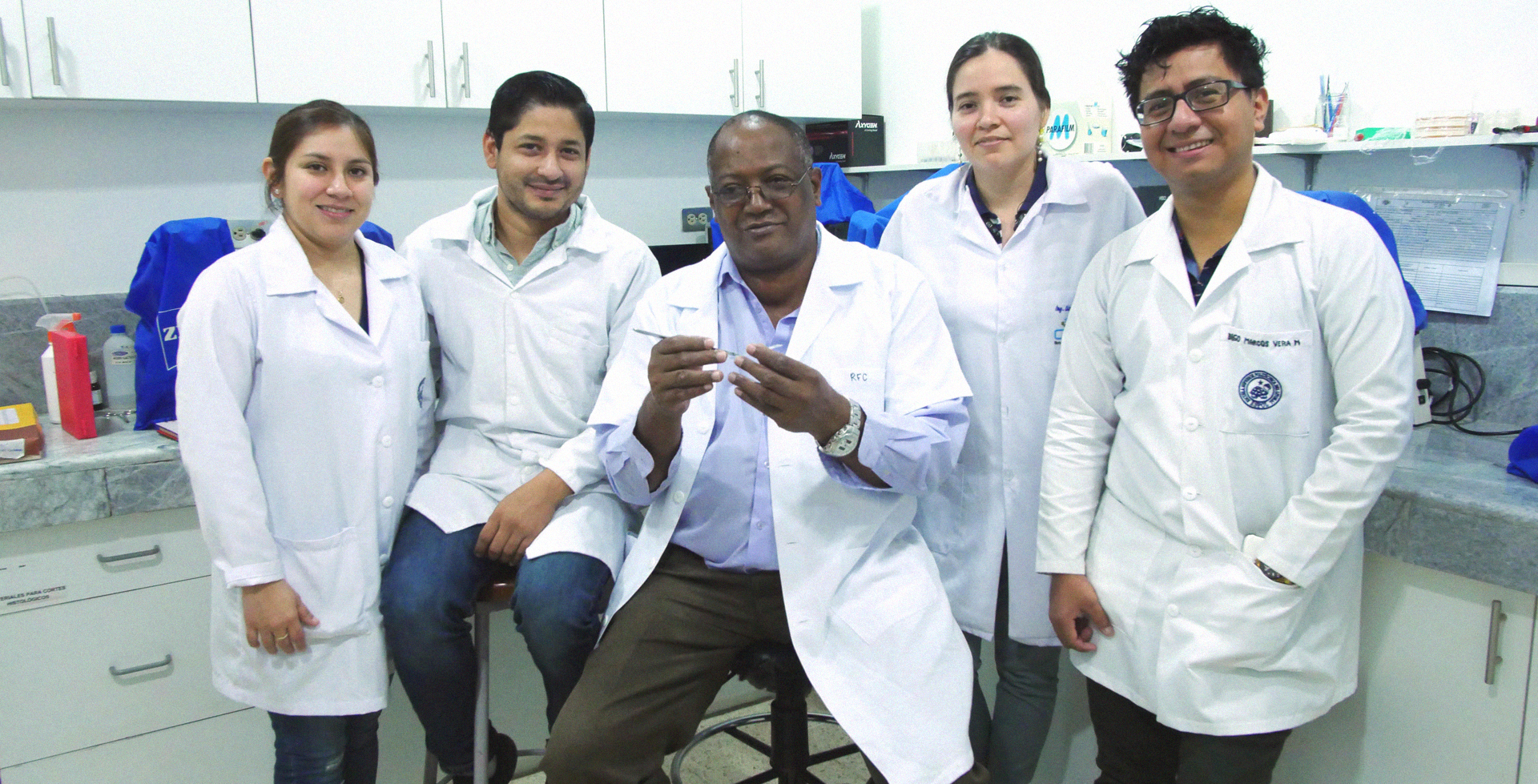NEW DISCOVERY DURING STUDY OF FUNGAL DIVERSITY OF RIO PALENQUE
2020-07-31The Río Palenque tropical rain forest is located in the province of Los Ríos, Ecuador. It was developed as a biological research center in the 70s and declared a protected area by the Ecuadorian Government in 1971. In 1998 it was acquired by the Wong Foundation with the commitment to ensure the protection of its great biodiversity in flora and fauna, and to promote biological scientific research. In order to achieve these objectives, the Wong Foundation builds strategic alliances with various academic and research organizations. One of these important alliances was made with ESPOL through a cooperation agreement that allows for a joint contribution to humanity and science.
As part of the fungal biodiversity conservation activities developed by CIBE-ESPOL (Center for Biotechnological Research of Ecuador), a team of young investigators, led by Dr. Rafael Castañeda, carried out in 2019 a new bioprospecting process for microorganisms from samples taken in the Río Palenque protected forest. As a result of the study, Dr. Castañeda identified a species that decomposes plant remains and contributes to the formation of organic matter, which had not been described to science. The study of the genus and species, which he named “Simuliotrichoconis wongii”, will be published in Volume 135 of Mycotaxon, an international scientific journal specialized in works on taxonomy and nomenclature of fungi.
There are an estimated 1.5 million species of fungi around the world, of which only 5% have been discovered so far. The range of ecosystem services that fungus provide is vast, as they serve as major recyclers that make the planet sustainable. In human everyday life, fungal impacts are also evident in the pharmaceutical industry, as well as in food and beverage production.
Dr. Castañeda describes his experience in the study of microorganisms in Río Palenque as fascinating, “I can honestly tell you that I am amazed by the high degree of fungal diversity and the number of novelties that I have isolated in pure cultures of the fungi that were collected there in Río Palenque. It seems that nature has rewarded you for your careful care and protection of the natural environment. "
About Dr. Rafael F. Castañeda.
Dr. Castañeda is a renowned mycologist, an expert in the taxonomy of asexual fungi, who was born in Cuba in 1951. He is a Doctor of Science, Full Member of the Cuban Academy of Sciences and Board Member of the International Society for Fungal Conservation (ISFC).
Although he tells us that his start in mycology was fortuitous, this has become his passion until today. Since 1981, he works in the collection of pure fungal cultures of the “Alejandro de Humboldt” Institute for Fundamental Research in Tropical Agriculture of the World Federation of Crop Collections. He has participated in studies on fungal diversity in a large number of countries on different continents, and to date he has described and published 858 new fungi genera, species and combinations.
